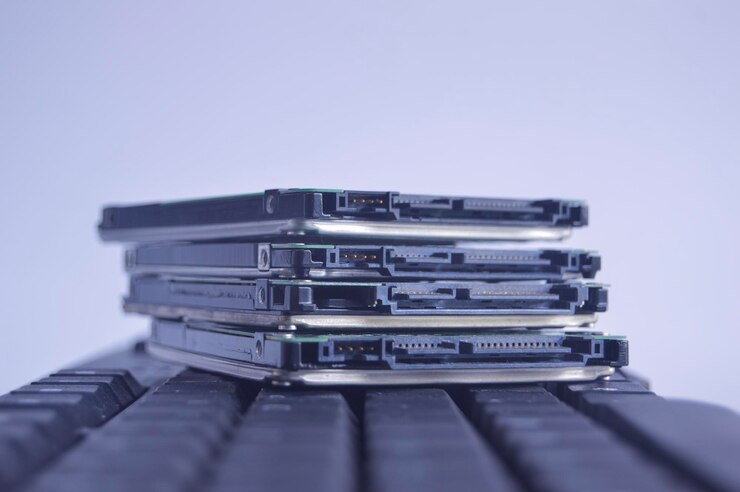

Are SSD Hard Drives Repairable? Laptop Repairs
Can my SSD hard drive be fixed? This is a question people often ask. Here's a blog for you if you're one of them.
Let's take a closer look at what could happen to your SSD that could require repair, and what if it has been physically damaged. First, let’s start with the underlying cause of the damage.
What Causes SSD Hard Drives to Fail?
There are a number of reasons why an SSD hard drive might fail, ranging from physical damage to the drive itself to logical corruption of the data stored on it.
There is a high probability of SSDs failing due to physical damage. This can include everything from Dropping or jarring the drive to exposure to extreme temperatures or humidity. If the flash memory chips inside the drive become damaged, then the drive will no longer be able to function correctly.
Logical corruption of data can also cause an SSD to fail. This can happen if the file system on the drive becomes corrupt, or if there are bad sectors on the drive that prevent data from being read or written correctly. Corruption can also occur if malicious software infects the drive and damages its contents.
Now that you understand what could be the root cause of the failure. Let’s dive in to learn how you can repair it.
How to Repair an SSD Hard Drive
Well SSD drive repair is not an easy task that anyone can perform. Always keep this thing in mind. Repairing an SSD drive needs a great level of expertise. When an SSD hard drive fails, it can be difficult to repair. This is because these drives are more complex than traditional hard drives and often require special tools to repair. Thus, we always recommend you only hire expert laptop repairs in Adelaide.
However, there are some things that you can do to try and repair an SSD hard drive yourself. These include:
Checking the Connections:
One of the first things you should do when troubleshooting an SSD hard drive is to check the connections. Make sure that the drive is properly connected to your computer and that all cables are firmly in place. Additionally, if you're using an external SSD drive, make sure that it's properly plugged into a power outlet.
Running a Disk Check:
If the connections seem to be fine, then your next step should be to run a disk check. This can be done by opening up My Computer (for Windows users) or Finder (for Mac users) and selecting the SSD drive. By right-clicking the drive and selecting Error Checking, you can check the drive's integrity.
Trying a Different SATA Port:
Another thing you can try if your SSD hard drive isn't being recognized by your computer is to try a different SATA port. If you're using a desktop computer, this shouldn't be too difficult to do. Simply unplug the SATA cable from the current port and plug it into another one. If you're using a laptop, however, you may need to open up the case in order to access the SATA.
How to Prevent SSD Hard Drive Failure
The most common question we receive is can I repair my SSD hard drives. The truth is that while some SSDs can be repaired, the process can be complicated and sometimes impossible.
However, there are ways to prevent SSD hard drive failure in the first place. Here are a few tips:
Avoid Physical Damage to Your SSD:
Just like any other type of hard drive, an SSD can be damaged if it's dropped or otherwise physically abused. So be careful with your computer!
Don't Overfill Your SSD:
Each SSD has a limited amount of writes it can perform over its lifetime, so it's important not to fill it up completely. Windows 10 has a "Storage Sense" feature that can help you keep an eye on your SSD usage and make sure you don't go over the limit.
Use a Reliable Data Recovery Service:
If you do end up experiencing data loss on your SSD, make sure to use a reputable data recovery service. There are many bad ones out there that will only make things worse. We recommend using Recover My Files, which is our top pick for the best data recovery software overall.
In conclusion, if your SSD hard drive fails, you may be able to repair it in some cases. However, in most cases, the cost of repairing a damaged SSD drive will far exceed that of purchasing a new one. Therefore, when it comes to laptop repairs involving an SSD hard drive you should always approach with caution as the risks involved may outweigh any potential benefits.

